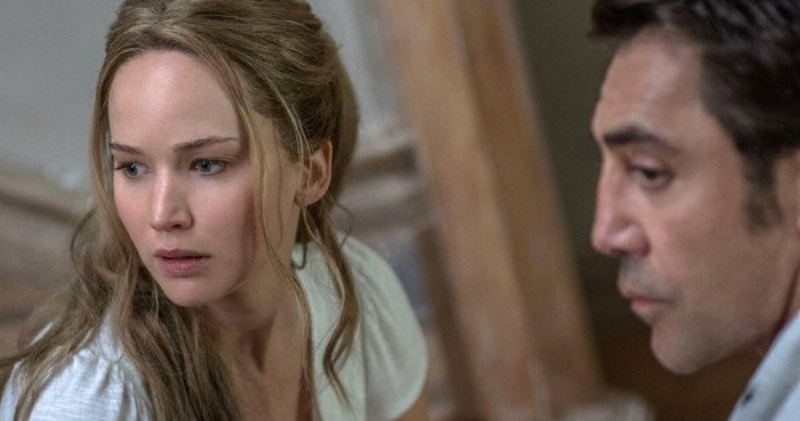BORDERLANDS
Directing: D+
Acting: C-
Writing: D
Cinematography: C+
Editing: C
Special Effects: C
There are so many things wrong with Borderlands, it’s hard to know where to begin—but, much as it pains me to do so, I am going to start with Cate Blanchett. Who knew she was even capable of bad acting, let alone being possibly the worst performance in this movie? Granted, an absolutely abysmal script—cowritten by director Eli Roth and Joe Abercrombie—didn’t do her any favors, but Blanchett is an actor of such talent and stature that one could reasonably expect her to elevate the material. Instead, it’s the opposite.
A big problem—among, oh my god, so many—is that Blanchett was cast in a movie like this to begin with. No one can blame her for wanting to have a little fun, but can she not recognize quality fun? Perhaps not. She’s like an alien trying and failing to act human in this part. It’s as though she spent decades playing parts with genuine gravitas, then dipped her toes into the pool of blockbusters—in this case, specifically video game adaptation—and discovered she had no idea what she was doing.
This brings me to Jamie Lee Curtis, who perhaps thought this was a the logical next step after the wild and brilliant ride that was Everything Everywhere All at Once. But when her charaacter, Tannis, is introduced a fair amount of time into the movie, we are literally warned that she is an “oddball” and “says a lot of weird things.” She then proceeds to spend the rest of the movie never saying anything particualarly weird at all. The oddest thing about her is a pair of dark protective glasses, and Curtis’s line delivery that has a incongruous dash of childlike chipperness. What, exactly, are these people doing?
Floudering in a narrative sink hole, that’s what. It’s truly depressing so see the likes to Cate Blanchett, after spending way too long with pointlessly expository voiceover narration, sit down at a bar and utter the words, '“I’m too old for this shit.” We have heard that line so many times in so many movies, it’s no wonder she says it with no conviction whatsoever.
It’s slightly ironic, then, that it’s the cast who aren’t such huge movie stars who better hold the camera in Borderlands. To be fair, Kevin Hart is a huge star too—as a comedian. He isn’t particularly funny here (almost no one is), but he has fairly natural delivery as Roland, the guy who kidnaps a young woman from what appears to be a space ship prison (this is never explained). That woman is “Tiny Tina,” played by Ariana Greenblatt, who gives the best performance in this movie—not that that’s a high bar. But least when she’s not hampered by leaden dialogue, she’s both compelling and fun, exuding a genuine charisma.
Blanchett plays Lilith, a bounty hunter hired to retrieve Tiny Tina for a corporate mogul (Edgar Ramírez) who may or may not be her father. When Lilith returns to her “shithole” planet of Pandora (very original) in search of Tina, she discovers a snarky robot named Claptrap who is programmed, to his own dismay, to serve Lility until her death. And Claptrap, while hardly the best movie robot in history, is the one consistently good thing in this movie. His lines, and particularly Jack Black’s delivery voicing him, got a good number of giggles out of me.
The production design, mostly rendered by subpar CGI, is very junkyard inspired, decaying husks of appliances and vehicles covered in graffiti, this being the general vibe of Pandora, where legend says there is a “vault” that holds the secrets to human potential once under the protection of an ancient alien race, or some such nonsense. The tone that Eli Roth is clearly going for is very much like the seminal 1997 Luc Besson film The Fifth Element. Except that movie had a director who knew what he was doing, it had a cast of natural movie stars who understood the assignment, and most importantly, it had an assured handle on both pacing and wit. Borderlands has none of these things. If not for Claptrap, I’d say it was completely witless. And not all of Claptrap’s lines land successfully either; he’s just got a greater success rate than any of the other characters combined.
The most frustrating thing about Borderlands is that it actually could have been good. Being silly doesn't inherently mean bad, but it needs just the right calibration. It’s not just that Borderlands is all spectacle and no substance. It’s that overall it rings hollow. The characters have all the dimension of video game characters left dormant, with no one even playing them—even while they move and speak. There’s nothing driving this story but going through the motions. At one point Lilith walks past an abandoned park merry-go-round and I wished I could have just spent two hours riding that instead. It would have been objectively more rewarding.
Behold, the hole they will never dig themselves out of.
Overall: C-







